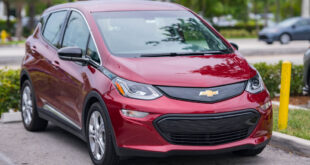Tesla vs Other EV Brands: Which One Stands Out in 2025? Electric vehicles (EVs) have become the cornerstone of the automotive industry’s transition to sustainability. Among the top contenders, Tesla dominates the conversation, but how does it compare to other EV brands in 2025? In this comprehensive guide, we’ll break down the differences, strengths, and weaknesses of Tesla and its competitors to help you make an informed choice.
Tesla vs Other EV Brands: Overview of the Market
Tesla’s Market Leadership
Tesla is synonymous with innovation in the EV industry. Known for its cutting-edge technology, long range, and efficient charging infrastructure, Tesla has set a high benchmark for other manufacturers.
Emerging Competitors
Brands like Rivian, Lucid Motors, Ford, and Hyundai are pushing the boundaries of EV innovation. Traditional automakers like BMW, Mercedes-Benz, and Toyota are also accelerating their EV portfolios to catch up with Tesla’s lead.
Key Factors to Compare Tesla with Other EV Brands
1. Performance
- Tesla: Offers industry-leading acceleration and top speeds across its lineup, with the Model S Plaid reaching 0-60 mph in under 2 seconds.
- Competitors: Rivian R1T and Lucid Air offer comparable performance, focusing on luxury and utility.
2. Range
- Tesla: Boasts some of the longest ranges in the market, with the Model S reaching up to 405 miles.
- Competitors: Lucid Air leads with over 516 miles, while other brands average around 300-400 miles.
3. Charging Network
- Tesla: Dominates with its Supercharger network spanning thousands of locations globally.
- Competitors: Rely on third-party charging networks like Electrify America, which are expanding but not as seamless as Tesla’s ecosystem.
4. Autonomy and Technology
- Tesla: Full Self-Driving (FSD) software is its hallmark, though still awaiting regulatory approval for full autonomy.
- Competitors: Brands like Mercedes-Benz and BMW are introducing advanced driver-assistance systems, but they trail Tesla’s AI capabilities.
5. Price Point
- Tesla: Offers a wide range, from the affordable Model 3 to the premium Model X and S.
- Competitors: Rivian and Lucid cater to the luxury segment, while Hyundai and Ford provide budget-friendly options.
Advantages of Tesla
- Industry-leading battery efficiency.
- Extensive and reliable Supercharger network.
- Advanced software updates that improve over time.
- A loyal community and strong brand identity.
Advantages of Other EV Brands
- Diversified offerings catering to niche markets (e.g., off-road, luxury).
- Innovations in design and material sustainability.
- Competitive pricing for mass-market adoption.
10 Tips for Choosing the Right EV
- Assess your daily driving needs and range requirements.
- Consider the availability of charging stations in your area.
- Compare total ownership costs, including maintenance and insurance.
- Look for government incentives or tax benefits for EV purchases.
- Test drive different models to gauge comfort and performance.
- Evaluate software features and ease of use.
- Prioritize brands with strong warranties and customer support.
- Check resale values to estimate long-term investment.
- Research environmental impact and production ethics.
- Read user reviews and ratings for real-world feedback.
10 Frequently Asked Questions
- Which EV brand has the longest range?
Currently, Lucid Air tops the market with over 516 miles of range. - Is Tesla’s Full Self-Driving worth it?
FSD offers advanced features but is not fully autonomous yet, so it depends on your preference for tech. - How reliable is Tesla compared to other EVs?
Tesla has a reputation for innovation but faces criticism for build quality. Brands like Toyota offer better reliability. - Do non-Tesla EVs have access to Superchargers?
Tesla is gradually opening its Supercharger network to other EVs in select locations. - Are EVs expensive to maintain?
EVs generally have lower maintenance costs compared to gasoline cars due to fewer moving parts. - What is the best EV for off-roading?
Rivian R1T and R1S are specifically designed for off-road adventures. - Which EV is best for families?
Tesla Model Y and Hyundai Ioniq 5 offer ample space and family-friendly features. - How does charging speed compare?
Tesla’s Superchargers are among the fastest, but Electrify America is catching up. - Are EVs environmentally friendly?
EVs are cleaner than ICE cars, but battery production has environmental implications. - What’s the cheapest EV in 2025?
Models like the Chevrolet Bolt and Hyundai Kona Electric are budget-friendly options.
Conclusion
In 2025, the EV market offers more diversity and innovation than ever. Tesla remains a dominant force with its unparalleled technology and infrastructure, but competitors like Lucid Motors and Rivian are catching up with unique offerings tailored to specific needs.
Whether you prioritize range, performance, affordability, or sustainability, there’s an EV for every lifestyle. Understanding your priorities and comparing brands will help you make the best choice for a greener future.
 oto car insurance used car repair
oto car insurance used car repair
